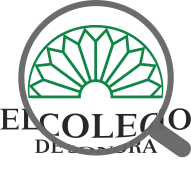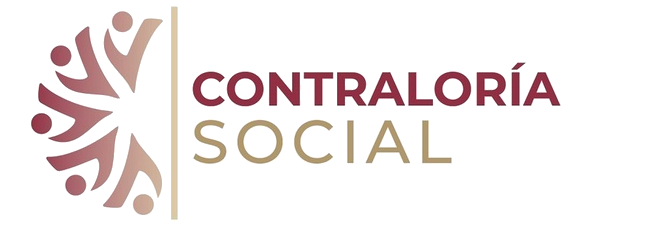Social and knowledge differences in children of elementary education in communities along the Amacuzac River in Morelos
No Thumbnail Available
Date
2019-05-22
Authors
Ocampo Molina, Lucía
López Medellín, Xavier
Maldonado Almanza, Belinda
Wehncke, Elisabet V.
Journal Title
Journal ISSN
Volume Title
Publisher
El Colegio de Sonora
Abstract
Using a qualitative approach, this article aims to statistically estimate the knowledge education elementary school students in four communities along the Amacuzac River have about environmental education, before and after attending a workshop on sustainable use, management and conservation of water and the riparian ecosystem, developed on the basis of educational materials from various institutions. Questionnaires were administered, and children’s responses reflect their perceptions on the issue. The results show significant differences in knowledge and learning among the communities, as well as in their capacities to assimilate new information and retain it. A clear diagnosis was obtained of participants’ knowledge and previous or initial experiences. This is important because the environmental education programs disseminated and implemented in the country are usually the same, but the population is heterogeneous, so it is relevant to include these variables in the analysis when comparing populations.
El objetivo del artículo es estimar estadísticamente, con un enfoque cualitativo, el conocimiento sobre temas de educación ambiental de estudiantes de primaria en cuatro comunidades del río Amacuzac, antes y después de asistir a un taller sobre uso sustentable, manejo y conservación del agua y del ecosistema ripario, elaborado con base en materiales educativos de varias instituciones. Se aplicaron cuestionarios, cuyas respuestas reflejan las percepciones de los niños sobre el tema. Los resultados evidencian las diferencias significativas de conocimiento y aprendizaje entre las comunidades; también las capacidades para asimilar información nueva y retenerla. Se obtuvo un diagnóstico claro de los saberes y experiencias previas o iniciales de los asistentes. Esto es importante, porque los programas de educación ambiental difundidos y aplicados en el país suelen ser los mismos, pero la población es heterogénea por lo que es relevante incluir estas variables en el análisis, cuando se comparan las poblaciones.
El objetivo del artículo es estimar estadísticamente, con un enfoque cualitativo, el conocimiento sobre temas de educación ambiental de estudiantes de primaria en cuatro comunidades del río Amacuzac, antes y después de asistir a un taller sobre uso sustentable, manejo y conservación del agua y del ecosistema ripario, elaborado con base en materiales educativos de varias instituciones. Se aplicaron cuestionarios, cuyas respuestas reflejan las percepciones de los niños sobre el tema. Los resultados evidencian las diferencias significativas de conocimiento y aprendizaje entre las comunidades; también las capacidades para asimilar información nueva y retenerla. Se obtuvo un diagnóstico claro de los saberes y experiencias previas o iniciales de los asistentes. Esto es importante, porque los programas de educación ambiental difundidos y aplicados en el país suelen ser los mismos, pero la población es heterogénea por lo que es relevante incluir estas variables en el análisis, cuando se comparan las poblaciones.
Description
Using a qualitative approach, this article aims to statistically estimate the knowledge education elementary school students in four communities along the Amacuzac River have about environmental education, before and after attending a workshop on sustainable use, management and conservation of water and the riparian ecosystem, developed on the basis of educational materials from various institutions. Questionnaires were administered, and children’s responses reflect their perceptions on the issue. The results show significant differences in knowledge and learning among the communities, as well as in their capacities to assimilate new information and retain it. A clear diagnosis was obtained of participants’ knowledge and previous or initial experiences. This is important because the environmental education programs disseminated and implemented in the country are usually the same, but the population is heterogeneous, so it is relevant to include these variables in the analysis when comparing populations.
El objetivo del artículo es estimar estadísticamente, con un enfoque cualitativo, el conocimiento sobre temas de educación ambiental de estudiantes de primaria en cuatro comunidades del río Amacuzac, antes y después de asistir a un taller sobre uso sustentable, manejo y conservación del agua y del ecosistema ripario, elaborado con base en materiales educativos de varias instituciones. Se aplicaron cuestionarios, cuyas respuestas reflejan las percepciones de los niños sobre el tema. Los resultados evidencian las diferencias significativas de conocimiento y aprendizaje entre las comunidades; también las capacidades para asimilar información nueva y retenerla. Se obtuvo un diagnóstico claro de los saberes y experiencias previas o iniciales de los asistentes. Esto es importante, porque los programas de educación ambiental difundidos y aplicados en el país suelen ser los mismos, pero la población es heterogénea por lo que es relevante incluir estas variables en el análisis, cuando se comparan las poblaciones.
El objetivo del artículo es estimar estadísticamente, con un enfoque cualitativo, el conocimiento sobre temas de educación ambiental de estudiantes de primaria en cuatro comunidades del río Amacuzac, antes y después de asistir a un taller sobre uso sustentable, manejo y conservación del agua y del ecosistema ripario, elaborado con base en materiales educativos de varias instituciones. Se aplicaron cuestionarios, cuyas respuestas reflejan las percepciones de los niños sobre el tema. Los resultados evidencian las diferencias significativas de conocimiento y aprendizaje entre las comunidades; también las capacidades para asimilar información nueva y retenerla. Se obtuvo un diagnóstico claro de los saberes y experiencias previas o iniciales de los asistentes. Esto es importante, porque los programas de educación ambiental difundidos y aplicados en el país suelen ser los mismos, pero la población es heterogénea por lo que es relevante incluir estas variables en el análisis, cuando se comparan las poblaciones.
Keywords
Ciencias Sociales, Sustainable development, Riparian lands, Environmental education, Riparian areas, Use of water, Water management, (cognitive) perceptions, Public opinion|, Desarrollo sustentable, Tierras ribereñas, Educación ambiental, Áreas ripícolas, Uso del agua, Gestión del agua, Percepciones (cognitivas), Opinión pública




